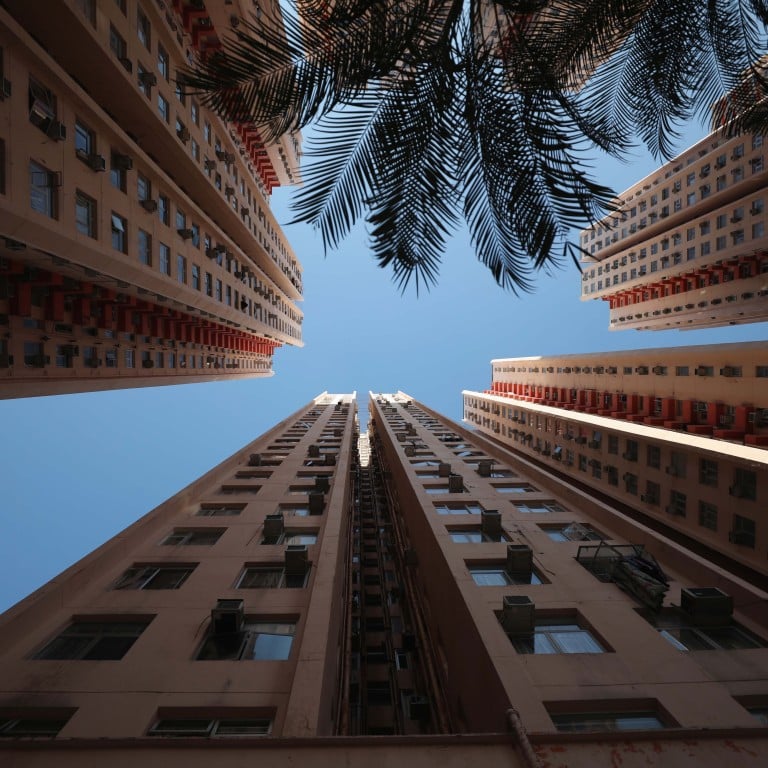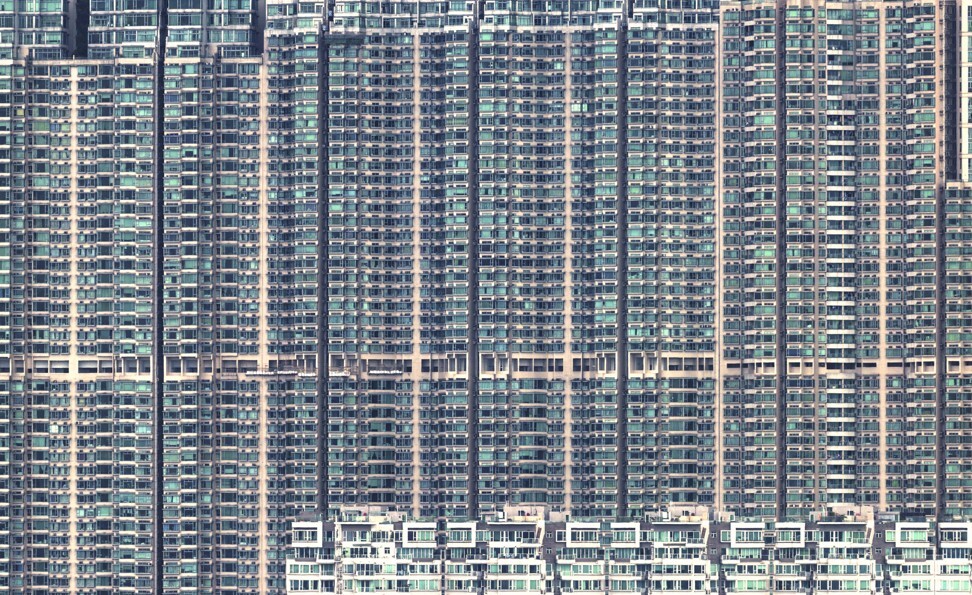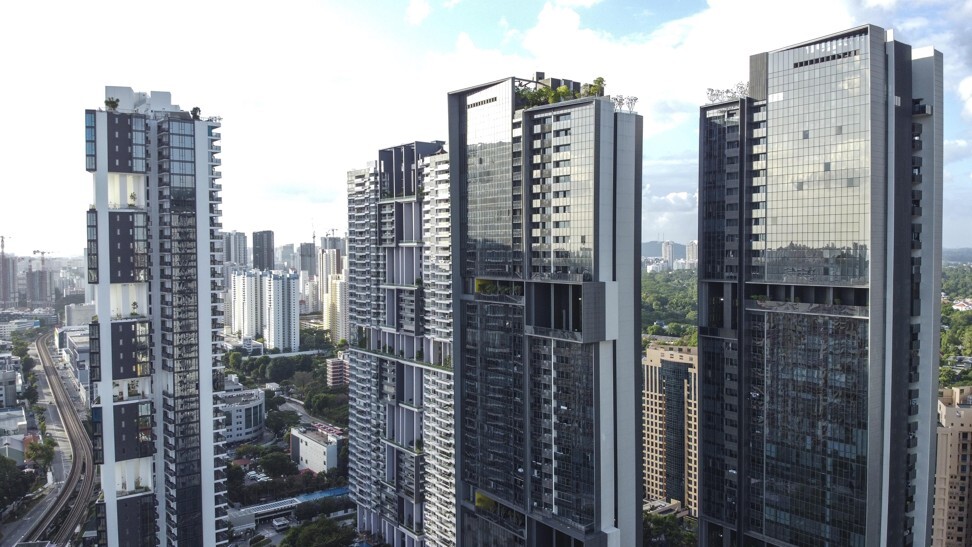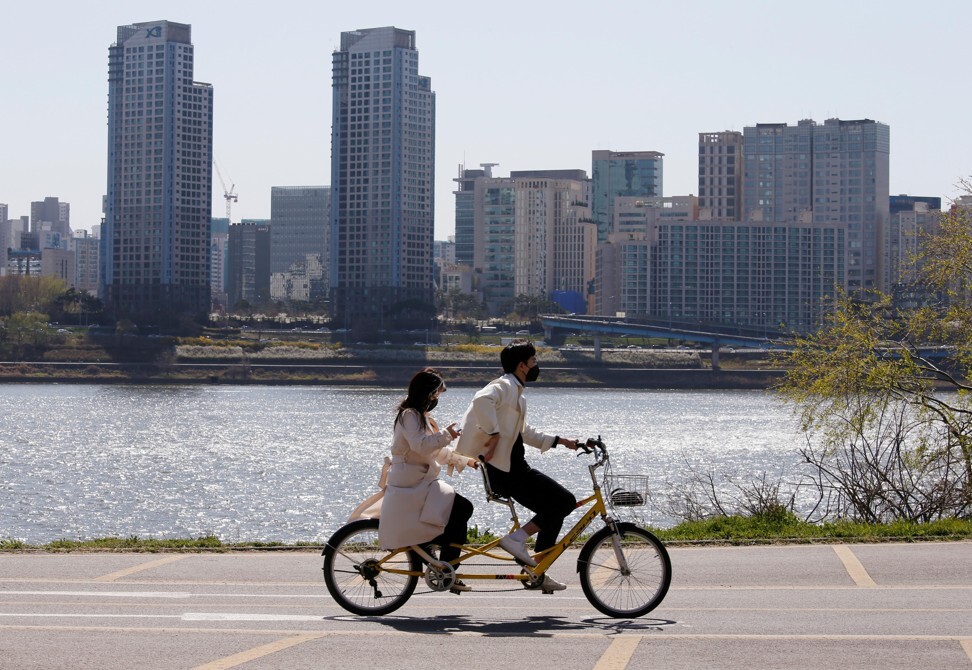Rents set to fall in Hong Kong but could rise in Singapore and Taipei, predict forecasters, as expats flee coronavirus

Renters hoping to negotiate cheaper housing in the wake of the coronavirus might be in luck, an industry forecast suggests.
If your landlord is in a position where they need to keep property occupied, or is willing to pass on the savings from lower mortgage interest rates, tenants in many locations across Asia are in a good position to bargain, says Lee Quane, regional director for Asia at ECA International, an HR consultancy.
Each year, ECA International works out housing costs based on the average rental prices for a mid-range, three-bedroom flat in more than 360 locations worldwide. The research is aimed at expatriate executives as the target market. When the latest data was collected last September – but only published on April 1 – it found that Hong Kong remains the world's most expensive location for accommodation in the category, for the third year in a row.
Madonna’s bath to Lizzo’s flute – the best celeb Covid-19 posts

The average monthly rent for an unfurnished flat in desirable areas such as Hong Kong’s Mid-Levels was US$11,318, a 3.45 per cent-rise. But this was less than increases seen in previous years “and there is likely to be significant drops in rent over the coming months”, according to the report.
How much did the world’s richest lose in the coronavirus market crash?
“In light of the prolonged anti-government protests and coronavirus outbreak currently under way, we expect to see rents fall throughout 2020 as the number of overseas workers in Hong Kong drops significantly, and the usually high demand for housing is tempered,” Quane says.

He also expects the next lot of data to show a trend reversal in Singapore. In the year to September 2019, the average rental in the city state nudged up by 1.4 per cent, to US$4,233 per month, after five consecutive years of decline. Quane attributes this to more overseas relocations to Singapore, especially in the fintech and pharmaceutical sectors, as well as “evidence that expatriate populations were moving from Hong Kong to the relative stability of Singapore”.
However, tighter restrictions on work permits for overseas workers have now counteracted demand somewhat, Quane says, and even though Singapore remains one of the most affordable locations for expatriate housing in Asia – and 25th on global rankings – Quane believes recent rent increases could be reversed as the coronavirus fallout bites.
In other insights from ECA International's data, mainland Chinese cities saw varying rental trends over the past year. While Beijing was fairly static, staying in 19th place globally, other cities saw big rises in the average rent.
Meet Vida, the flamboyant Malaysian multimillionaire doctor
“Future years may lead to more stability in the rental market though, with the local government making efforts to increase the availability of land for new property construction,” he says.
Taipei was another city which saw a steep 5.29 per cent rise in rent from last year, moving the Taiwanese capital into the top 50 most expensive locations in the world for expat accommodation.

Quane cites two main drivers. “Firstly, expatriate numbers increased in the city due to the award of government contracts for a major offshore wind power project,” he says. “Secondly, after years of unsustainable rises to property sales prices in Taipei, competition for rentals has increased as many local nationals continue to rent in anticipation of future drops in the housing market.”
Australian cities saw rents drop in every location except for Canberra, significantly in some cases. Surprisingly, the biggest city, Sydney, saw one of the largest drops in average rent.
“Sydney's previously growing rental market took a turn between 2018 and 2019 as its traditionally high prices dropped,” Quane explains. “A subdued sales market combined with low interest rates allowed many would-be renters to purchase properties instead of renting, prompting an upturn in vacancy rates across all city suburbs.”
What does 2020 look like for Isha Ambani?
Until recently, when the coronavirus took hold in the US, America was becoming considerably more expensive for expats, with nearly all US cities in the rankings rising, some considerably, and with New York, San Francisco and Miami in the global top 10.
Quane says that, generally speaking, the US cities in the firm's rankings were rising due to the dollar's strong performance, but there were also local reasons for the rises in rental costs.
“For example, in Boston, biotech and pharmaceutical industry sectors have drawn expatriates to the city in large numbers, bolstering demand for properties in prime neighbourhoods, whereas New York saw lower-than-expected rental increases after Amazon withdrew [its] plans to establish a second headquarters in Queens,” he says.

But all bets are off because of Covid-19, and Quane believes rents are likely to come down in many locations as demand softens, and/or people have a reduced capacity “to pay the current rate of rents we see throughout the world”.
This puts renters in a good position to try to negotiate leases, Quane says. “If landlords want to keep tenants they should be prepared to listen,” he adds. “Some may be dependent on tenants as a source of income, and those may be more amenable to discussions. Others who see property more as a source of capital investment may be less willing or less flexible.”
Dr Lee Nai Jia, head of research at Knight Frank Singapore, agrees that it's worth a try, although it might be too early to have much leverage.
How Tien Nguyen, Vietnam’s richest heiress, fled London with coronavirus
After a busy December, January and February are usually quiet months for rentals as people want to get settled before the New Year holidays, he says. Singapore owners are not willing to lower their rents in the early months of the year; likewise, they might also have considered the pandemic to be short-lived.
“When things get worse, with job losses and pay cuts, that will definitely impact on rental income,” Lee says. That kind of effect is not visible yet, but will “probably will hit three to six months down the road”. Lee believes that if property owners have holding power they can sustain for a long time, “they will probably just wait it out”.
However, as Quane points out, if you're not locked into a lease you can always downsize, or move to a cheaper location.

Rental price guide
The 10 most expensive locations for expat rental accommodation in Asia in 2020, according to data from ECA International. The data is based on the average rental prices for a mid-range, three-bedroom flat “in an area where expatriate executives would want to live”.
1. Hong Kong US$11,318
2. Tokyo, Japan US$9,207
3. Shanghai, China US$5,363
4. Yokohama, Japan US$5,090
5. Seoul, South Korea US$4,931
6. Beijing, China US$4,566
7. Mumbai, India US$4,403
8. Osaka, Japan US$4,254
9. Singapore US$4,233
10. Bangkok, Thailand US$4,076
Want more stories like this? Sign up here. Follow STYLE on Facebook, Instagram, YouTube and Twitter .

Experts at ECA International predict a Hong Kong rental slump through 2020, but trends suggest Singapore and Taipei could be on the up, while Australia looks sluggish and mainland China remains uncertain